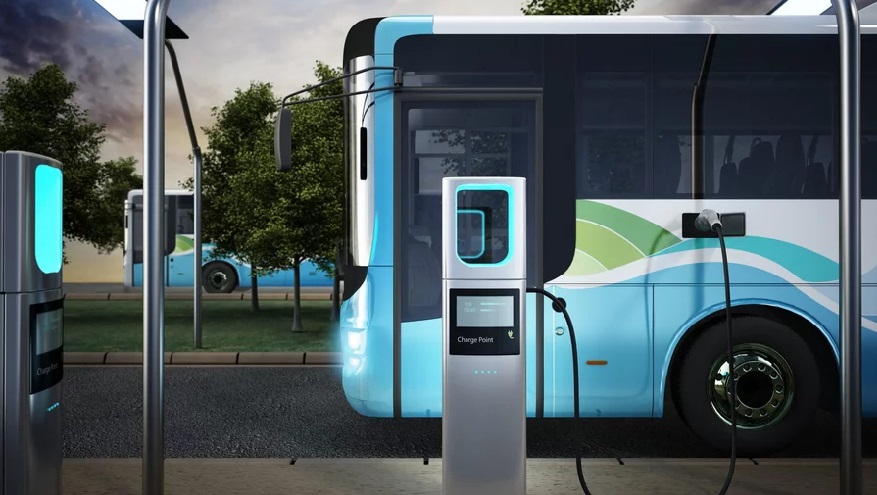In recent years, Europe has witnessed a significant transformation in the public transport sector, driven by the rise of electric buses.
In fact, Transport&Environment states that in 2023, electric units accounted for 36% of new urban bus sales in the European Union (EU), surpassing diesel for the first time as the best-selling fuel type.
With this growth rate, by 2027 all new city buses in the EU could be zero-emission.
Specifically, 15 EU member states exceeded the European average, including five countries where eBuses already represent over 90% of new sales: Slovenia, Denmark, the Netherlands, Ireland, and Finland.
Among the major markets, the United Kingdom (UK) leads with a 63% share of ZE buses, followed by Spain, which exceeds the average with 40%.
Italy and Germany rank third and fourth with shares of 29% and 26%, respectively.
France occupies the lowest position among the major markets, with a 23% share.
Conversely, Estonia ranks last in the list, with no current electric units.
However, progress is expected to begin soon, as the first electric buses arrived in Tallinn a few months ago.
Top 10 electric bus projects in Europe
Across Europe, the shift towards electric mobility is achieving significant milestones with innovative projects that are reshaping urban transportation towards a more sustainable future.
In Switzerland, Lausanne has collaborated with HESS to establish a fleet of over 100 trolleybuses operating silently and emission-free on the city’s Line 9.
In the UK, First Bus has taken a significant step towards a fully electric bus fleet with the acquisition of 169 Yutong vehicles.
These units, equipped with advanced energy management technology and passenger infotainment systems, are set to revolutionize public transport in cities like Manchester and Leeds.
First Bus’s investment is part of their commitment to achieving an emissions-free fleet by 2035, aligning with the country’s carbon reduction goals and enhancing accessibility and comfort for all users.
Similarly, Reading Buses has placed a significant order for 24 Enviro400EV buses and 29 low-emission vehicles to strengthen their commitment to electric mobility.
These will enter service on key routes like the 17 and 21 in 2025, eliminating local emissions and improving air quality in the city.
De Lijn has implemented VDL eBuses in cities such as Ghent and Sint-Niklaas in Belgium, which not only provide a quieter and smoother ride but are also equipped with modern features like USB ports and electric ramps to enhance accessibility.
Concurrently, Nobina has expanded its fleet with 88 Solaris electric units in Sweden, renowned for their energy efficiency and versatility in various climate conditions.
They come equipped with intelligent energy management systems and advanced safety features to ensure safe and comfortable transportation for passengers.
France continues to lead with Irizar e-mobility’s Tram’bus in the Bayonne-Anglet-Biarritz region.
Since its introduction in 2019, the Tram’bus has transported over 12 million passengers, becoming a symbol of regional identity and a model of sustainable mobility.
The recent order of eleven new Irizar ie tram vehicles, including 18 and 12-meter models, marks a step towards expanding and enhancing public transport networks in the region.
These new trams feature high-capacity 470 kWh batteries and lighter, more efficient propulsion systems, increasing autonomy while reducing environmental impact and long-term operational costs.
In Orleans, confidence in Irizar e-mobility trams continues to grow with the addition of new units to strengthen their transport infrastructure.
This trend towards electromobility is also spreading to major European capitals like London and Madrid, where public transport projects are adopting advanced solutions to improve service quality and reduce carbon emissions.
Finally, in the Netherlands, Hermes has introduced their new generation of Citea buses in North Brabant, renowned for their innovative design and advanced technology.
The units feature fully electric drivetrains, with batteries integrated into the floor and motors in the wheels, providing space for up to 92 passengers and improving energy efficiency.
Additionally, Citea buses are equipped with advanced safety systems such as frontal collision warning and blind-spot detection, ensuring a safe and comfortable journey for all users.
Hermes has set a standard for clean mobility in the region, supporting the vision of a fully emissions-free fleet by 2030 and providing an enhanced travel experience in urban and suburban areas.








